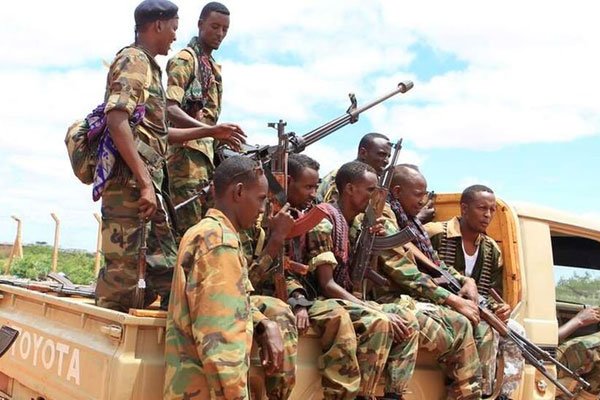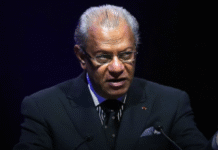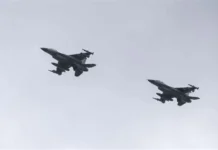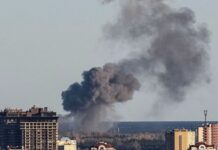According to Somali National Army Chief Odowa Yusuf Rage, 75 al-Shabaab militants were killed by the military and anti-al-Shabaab militias in the Hiran region over the weekend during the battle to take Yaasooman village.
Rage told Somali state media on Monday that “dozens of prisoners” had been arrested and that security forces had confiscated equipment and guns during the ongoing operation.
“The army sacrificed their lives, comfort and family bonds to free our country,” he added.
Following the battle, state-run television broadcast images of dozens of dead militants, as well as guns and military ammunition.
“The death of Alshabab terrorists who were killed in yesterday’s security operation conducted by Somali National Army near Yasoman village in Hiran region has reached 75,” SNA said in a tweet.
On Sunday, a government-backed Somali militia killed at least 45 al-Shabab fighters and beheaded some of them, according to officials.
In late August, the general paid a visit to the soldiers on the frontlines in Hiran, where he urged residents of newly liberated towns to work with the government to ensure the area does not fall back into terrorist hands.
According to local media, General Mohamed Tahlil Bihi, commander of the national infantry troops, credited the mobilization of local tribes against terrorists in central and south-central Somalia for turning the tide against the Al Qaeda-linked militant insurgency.
During the most recent offensive, which began earlier this summer, the Somali military claimed to have retaken at least 30 villages from al Shabaab.
The Somali government estimates that at least 200 al Shabaab fighters have been killed and another 100 have been seriously injured in recent weeks of intense fighting.
Security analysts believe that if local militias continue to assist in securing and clearing villages, Somalia’s special forces will be able to exert pressure on al Shabaab-controlled areas.
However, security experts say that in order to effectively hold the newly liberated territory, federal and local authorities must be able to bring about real and lasting improvements in governance and security.
Since the fall of Siad Barre in 1991, Somalia has lacked a stable government.


















